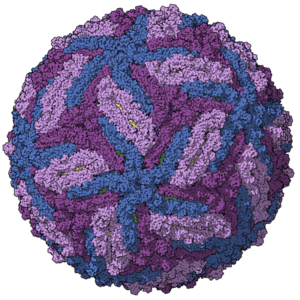It has been known for some time that there is a link between Zika virus infection in pregnant women and birth defects of their infants. The extent of this was, however, not fully appreciated. A research group led by Karin Nielsen‑Saines found that Zika infection was associated with growth restrictions, nervous system abnormalities and foetal death.
Zika virus is a a member of the Flaviviridae family of viruses. Transmission is through the Aedes mosquitos. The virus usually causes only mild symptoms, even in pregnant women, such as headaches and rashes. However, infection with the virus may affect the foetus, leading to complications such as microcephaly and other birth defects. There is still no specific treatment for Zika virus disease and no preventative vaccines.
The researchers wanted to further understand the risk of Zika virus infection in pregnant women. They recruited pregnant women in Rio de Janeiro who went to a clinic for treatment of a rash that had occurred at least 5 days prior to arrival at the clinic. They took both blood and urine samples to confirm the presence of Zika virus in these women. The women were followed up to see the outcomes of their pregnancies.
The study found that 53% of the pregnant women were positive for Zika virus infection. The Zika infections were estimated to have occured between 6-39 weeks of pregnancy. Of the infected women, almost half of the pregnancies had “adverse outcomes” which included foetal death and brain damage. 42% of the infants had “grossly abnormal” outcomes. The adverse outcomes were not trimester dependent.
One of the limitations of the study at this stage is that the infants were only assessed at a very young age and therefore some neurological symptoms of some diseases would not have manifested by the time of the testing. This means that the numbers shown in this study could be an under-representation of the effects Zika virus infection has on child development. The study will continue to follow up the children and see what other neurological conditions may emerge.
Altogether, these data confirm that Zika virus is associated with adverse outcomes for the foetus even though the infection only produces mild symptoms in the mothers. The study highlights that the problems faced by Zika infection could be severe and could result in foetal death.
Journal Article: Brasil et al., 2016. Zika Virus Infection in Pregnant Women in Rio de Janeiro. New England Journal of Medicine
Article by Thandeka Moyo












